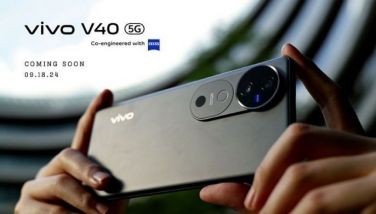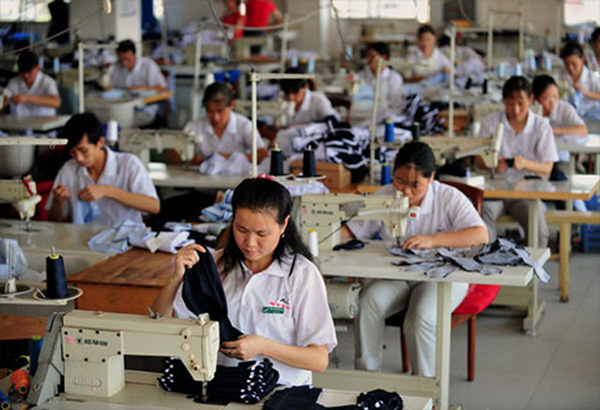Sweet poison
If you have not yet picked up the habit of checking the ingredients of processed foods you buy at the supermarket, your health demands that you should do so immediately. You have to be on the lookout for ingredients that negatively affect your health, specially if you are already a senior citizen.
One food villain I have heard so much about in my recent trip to the United States is High Fructose Corn Syrup or HFCS. From what I have heard and read, it is a killer… a sweet poison that our bodies find difficult to process. It causes a variety of diseases such as diabetes, weight gain, hypertension, cancer, fatty liver and high cholesterol among others.
Yet, it is a favorite of food processors, most specially soft drink bottlers as well as other manufacturers of our favorite processed food products. I found HFCS in a bottle of Heinz catsup. I even found HFCS in a locally manufactured yoghurt brand which is such a travesty because yoghurt is supposed to be healthy food.
That is why our Congress was right to tax products containing HFCS twice the rate imposed on those using natural sugar. Indeed, the TRAIN Law should have made the tax thrice, or even four times, not just to remove its price advantage over natural sugar that we produce, but also to discourage consumption and reduce public health expenditures.
On the economic side, HFCS is killing our sugar farmers. It enriches Chinese and American farmers who can certainly do well without our help.
The worst culprits are the soft drink companies. They have some nerve telling the public that soft drinks shouldn’t be taxed because they support the livelihood of Filipino sugar farmers. As it turns out, the largest soft drink brand is using almost 100 percent imported HFCS from China and the US.
I googled and found a PhilStar story in April last year about how the sugar industry is being sacrificed by government. The Sugar Alliance of the Philippines slammed Agriculture Secretary Emmanuel Piñol for being partial to the soft drinks companies on the importation and use of HFCS.
The local sugar industry found the so-called compromise offered by Piñol unacceptable. “It continues to reek of preference for the beverage companies rather than for sugar farmers,” SAP spokesperson Dino Yulo said.
According to the PhilStar report, Coca-Cola uses 90 percent HFCS and just 10 percent sugar. But Piñol said Coca-Cola is willing to adjust to a 80:20 ratio still largely in favor of imported HFCS.
I asked a Pepsi Cola executive who dropped by the Tuesday Club this week and he confirmed their competitor really prefers low cost HFCS. Pepsi, on the other hand, uses a 80:20 ratio in favor of locally produced cane sugar, he said. That is why the sugar industry supported Pepsi during the TRAIN deliberation.
But the Pepsi executive admitted it is difficult to ignore cost. HFCS is three times cheaper than cane sugar. At least, he pointed out, TRAIN equalized the costs to remove much of the price advantage of HFCS over local sugar.
Still, we ought to be very careful about ingesting too much sugar, natural or HFCS if we want to be healthy. The food industry doesn’t care about our health. Indeed, they will even claim some of their products are healthy when the opposite is true.
Manufactured mostly from genetically modified corn, high fructose corn syrup is definitely not natural and definitely not healthy. But it’s hard to escape this questionable form of sugar found in cereals, baked goods, juices and sodas, among an array of other commonly consumed food and drink.
There are so many reasons why high fructose corn syrup should be banned from our food supply. According to one article I read, here are some of the most highly disturbing facts about high fructose corn syrup:
1. Weight gain
There is a lot of debate over high fructose corn syrup vs sugar. Many HFSC supporters say both are equally bad, but all sweeteners are not created equal when it comes to putting on unwanted pounds. A Princeton University study found that HFCS causes more weight gain than refined sugar does.
Specifically, animal subjects with access to high fructose corn syrup put on significantly more weight than those with access to table sugar, even when overall caloric intake was equal.
Furthermore, long-term consumption of high fructose corn syrup was also shown to lead to abnormal increases in body fat, especially in the abdominal region, as well as an increase in triglyceride levels. According to researchers, this study provides insight into factors contributing to the rise of obesity.
2. Cancer
Research from 2010 published by the American Association for Cancer Research found that the fructose in HFCS promotes cancer growth, specifically pancreatic cancer.
The study actually found that cancer cells can readily metabolize fructose and induce rapid reproduction of pancreatic cancer cells. This research provides very good reason why cancer patients should not be given anything containing high fructose corn syrup and how avoiding HFCS can possibly disrupt cancer growth.
3. Fatty liver and liver stress
When HFCS enters your bloodstream, fructose travels directly into your liver and overwhelms your liver’s processing capacity. This then causes unhealthy fat production in your liver called lipogenesis. This can lead to fatty liver disease.
It doesn’t stop there, though. Having a fatty liver can lead to serious liver stress, liver damage, obesity, prediabetes and Type 2 diabetes.
One of several animal studies shows that excessive fructose consumption is associated with dyslipidemia and increased fat deposits in the liver. Dyslipidemia, or having high blood levels of cholesterol, triglycerides or both, is a major risk factor for coronary heart disease.
The study concludes that the findings support limitation of excessive fructose addition in beverages in order to counteract the current epidemic of obesity and Type 2 diabetes.
There are more health problems caused by HFCS than can be covered in one column. Suffice it to say it is sweet poison. Seems to me HFCS is as bad as tobacco. Maybe,
TRAIN didn’t tax it high enough to discourage use.
Boo Chanco’s e-mail address is [email protected]. Follow him on Twitter @boochanco
- Latest
- Trending






























